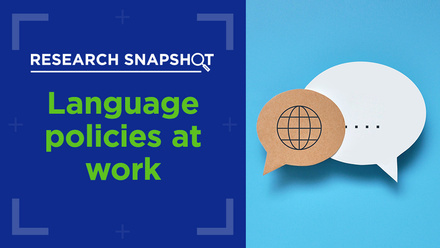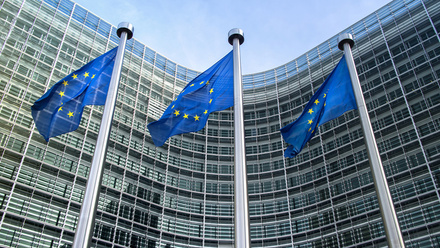America on our minds

This week marks International Education Week in the United States, an annual promotion by the US Departments of State and Education designed to celebrate the contributions of international education in the US context. Typically, the release of the ‘Open Doors’ report on student mobility is the headline event of International Education Week – but this year, of course, much more prominent in most of our minds is the outcome of the hotly contested US presidential race, resulting in the election of Joseph R. Biden.
According to James Moran, Associate Senior Research Fellow at the Centre for European Policy Studies and a former EU diplomat: "Now, with Biden’s longstanding belief in multilateralism and international cooperation, we can look forward to seeing Washington coming back to the table, and that can only be a good thing for Europe and the world at large."
Biden’s presidency will provide an opportunity to build bridges with international partners based on trust and mutual respect with a focus on the enormous challenges our planet and societies are facing: climate change, infectious diseases and general threats to our security. The USA makes a significant contribution to the collective response to global challenges, and international collaboration on the pandemic, security issues, global trade and climate action is vital.
Tackling the pandemic
Biden has quickly demonstrated a different approach to his predecessor, announcing the appointment of a 12-member coronavirus taskforce, an impressive group packed full of experts and scientists. This is a clear sign of the diverging path that Biden intends to take when it comes to dealing with the pandemic. Trump, compared to other leaders, was slow to hire a science adviser, he withdrew from the international Paris climate accord after calling climate change "a hoax", and repeatedly dismissed the advice of a leading infectious diseases specialist, Anthony Fauci.
Trump created barriers that can easily be lifted, but it may be more difficult to shift perceptions of the USA as a welcoming place to work and study
European Commission President Ursula von der Leyen has also expressed optimism, saying the EU "stands ready to intensify cooperation with the new administration" on "tackling climate change together" and "fighting COVID-19".
Impact on mobility and collaboration
Whether election results alter student or staff mobility trends is debatable. In my experience, academic connections are personal and are robust enough to resist political comings and goings. Likewise, students tend not to be overly influenced by election results, unless their policies impact them directly. Trump’s track record on immigration created barriers that can easily be lifted, but it may be more difficult to shift perceptions of the USA as a welcoming place to work and study.
Collegues at the British Universities Transatlantic Exchange Association confirmed that the main consideration in terms of outbound mobility (UK to USA) is confidence in the way the pandemic is being managed. With the USA being one of the worst-affected countries in the world in terms of COVID-19, it’s understandable that students and parents are concerned about the health risks of studying there. This, combined with uncertainties about when and how campuses are going to re-open and a lack of clarity on visa processing times will be the main deciding factors for students considering the US as a study destination.
Only time will tell how a Biden administration will unfold and what its overall impact on internationalisation will be. But for the time being, the US election results give us a good reason for cautious optimism about the future of the pandemic, its effect on mobility, and the many other shared challenges we face.The EAIE podcast brings you voices, perspectives, ideas and insights into the world of international education. Host Laura Rumbley chats with special guests about the issues that matter most for your day-to-day work internationalising higher education.






